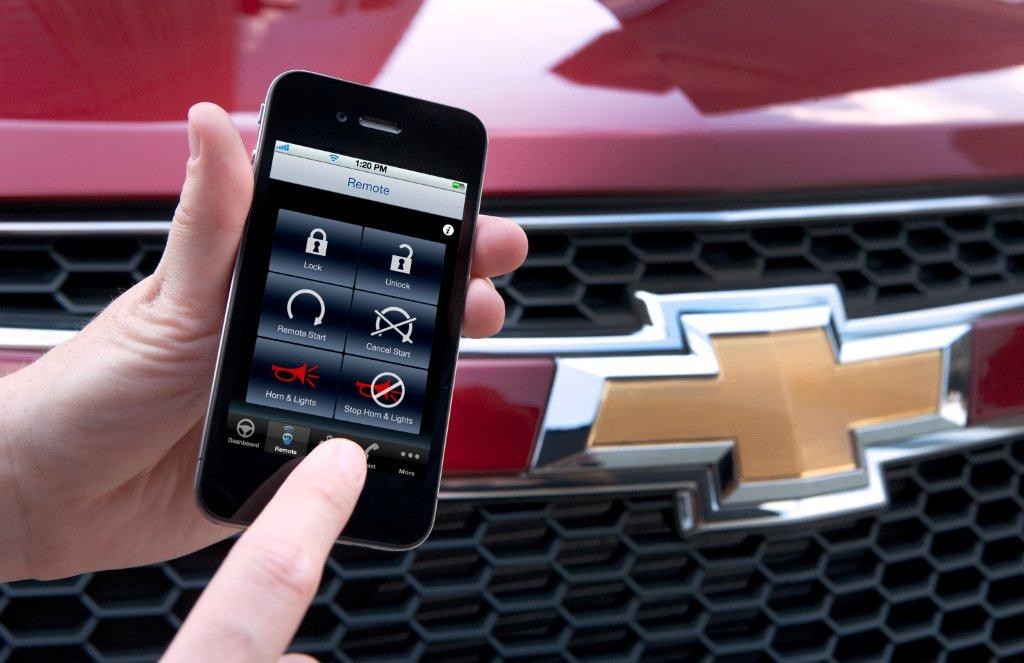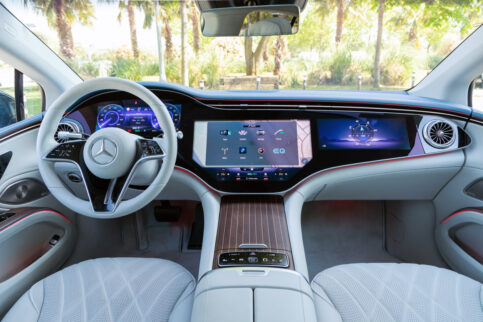Wondering what your new car may know about you? Modern vehicles are basically giant computers, capable of collecting all kinds of data—similar to a smartphone. But what exactly does your car know, and how can you limit what it collects? Let’s look at what personal data is stored in your car.
How Does My Car Collect Data?
Today, most cars are built with an extensive system of computers. When you activate a turn signal, for example, it could be recorded as a digital point in your car’s internal network. Every movement and choice you make in your vehicle may be logged and compiled into an overall driver profile. This includes your vehicle’s health, speed, location, and brake usage.
This information about how and where you drive is known as telematics. In many cases, it’s useful information to track. For example:
- Insurance companies can use this data to calculate discounts for good drivers.
- Dealers can let you know when your vehicle needs an essential service.
- Automakers sometimes review telematics to improve their vehicle designs.
- With the right warrant, law enforcement can access this information as evidence if there’s been an automotive accident.
However, not all vehicles automatically record this information. Some brands have telematics collection embedded into their vehicles, like Volkswagen, Volvo, and Tesla. With other cars, you can have a telematics device installed to record your driving habits.
But aside from how you drive, what else can your car know about you?
What Kind of Data Is My New Car Collecting About Me?
Depending on your vehicle, the manufacturer may be able to collect all kinds of personal information with in-car services, like General Motors’s OnStar or Mercedes-Benz’s Me Connect. This information can include details like these:
- credit card details
- voice-command information
- Wi-Fi and data usage
- images taken by the car’s cameras
This data can be used to collect outstanding debt, to deliver targeted advertisements, or to be shared with third-party businesses. If you connect your phone to your car using Bluetooth or a USB cable, all your contacts and text messages can potentially be copied onto the vehicle.
We know it’s not exciting reading, but read privacy statements. They will give you some insight.

Can Data Regulations Protect Me?
Car data is nowhere near as regulated as car safety. Many automakers have an extensive privacy policy, but much of the language within them is very open-ended. Most of these agreements also require consumers toopt out of various parts of data collection, rather than opt in.
In 2020, the Automotive Industries Association (AIA) of Canada launched the Your Car. Your Data. Your Choice. initiative to raise awareness among consumers and lawmakers about vehicle data collection. The AIA was specifically concerned about how automakers can limit the information drivers have access to about their car, preventing them from accessing appropriate repair and maintenance services.
The initiative changed its name to Right to Repair in Canada. The AIA posted their latest update November 1.
What Can I Do About My Data?
Connected cars require data to deliver amazing assistive features. For many people, sacrificing some information, especially things that their phone or insurance company likely already know, is worth it for advanced safety and the extra convenience.
If you don’t want these features in your car, you can always purchase an older car. Otherwise, you can do the following to limit how much your modern vehicle collects about you:
- Opt out of telematics programs by insurance companies.
- Opt out of data collection by automakers.
- Don’t subscribe to in-car services like OnStar.
- Avoid connecting your phone to your vehicle.
Can I Clear My Car’s Data When I Sell My Car?
If you’re going to sell your vehicle, follow these steps to clear your personal data from its computer:
- Do a factory reset (check the owner’s manual for how to do this).
- Remove GPS data.
- Delete contacts and Bluetooth pairings.
- Remove garage access.
- Log out of vehicle apps.
- Wipe and remove any storage drives.
While it’s useful to know what information your car may know about you, it’s not healthy to obsess over it either. As long as you do your research on how automakers may access your data, you can decide how to control your privacy and maintain your peace of mind. For more automotive tips and news, check out our blog.


